NEWSLETTER
BE FIRST IN LINE FOR OUR NEXT RELEASE.
© 2025 TIPSTER. ALL RIGHTS RESERVED.
NEWSLETTER
BE FIRST IN LINE FOR OUR NEXT RELEASE.
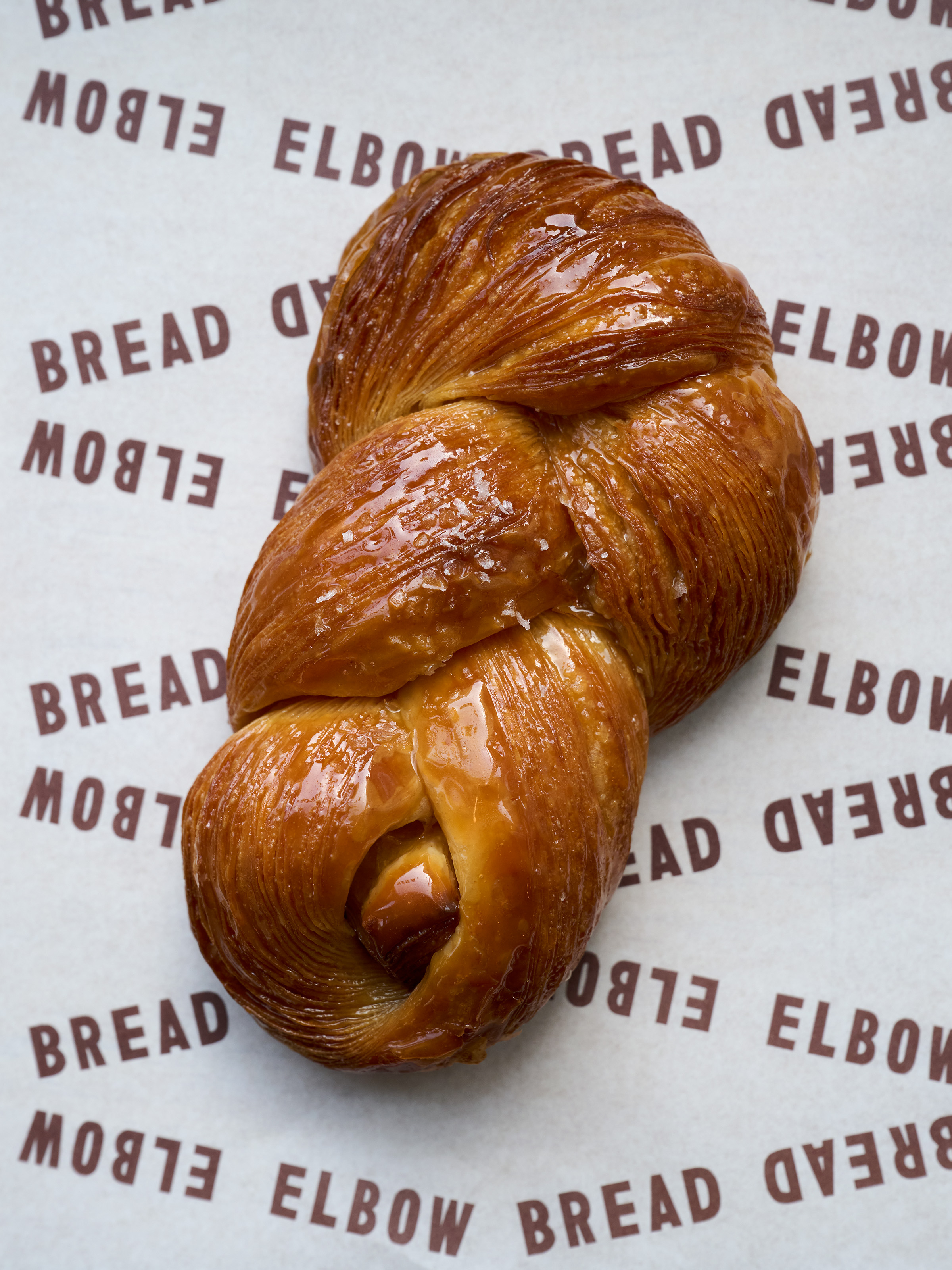
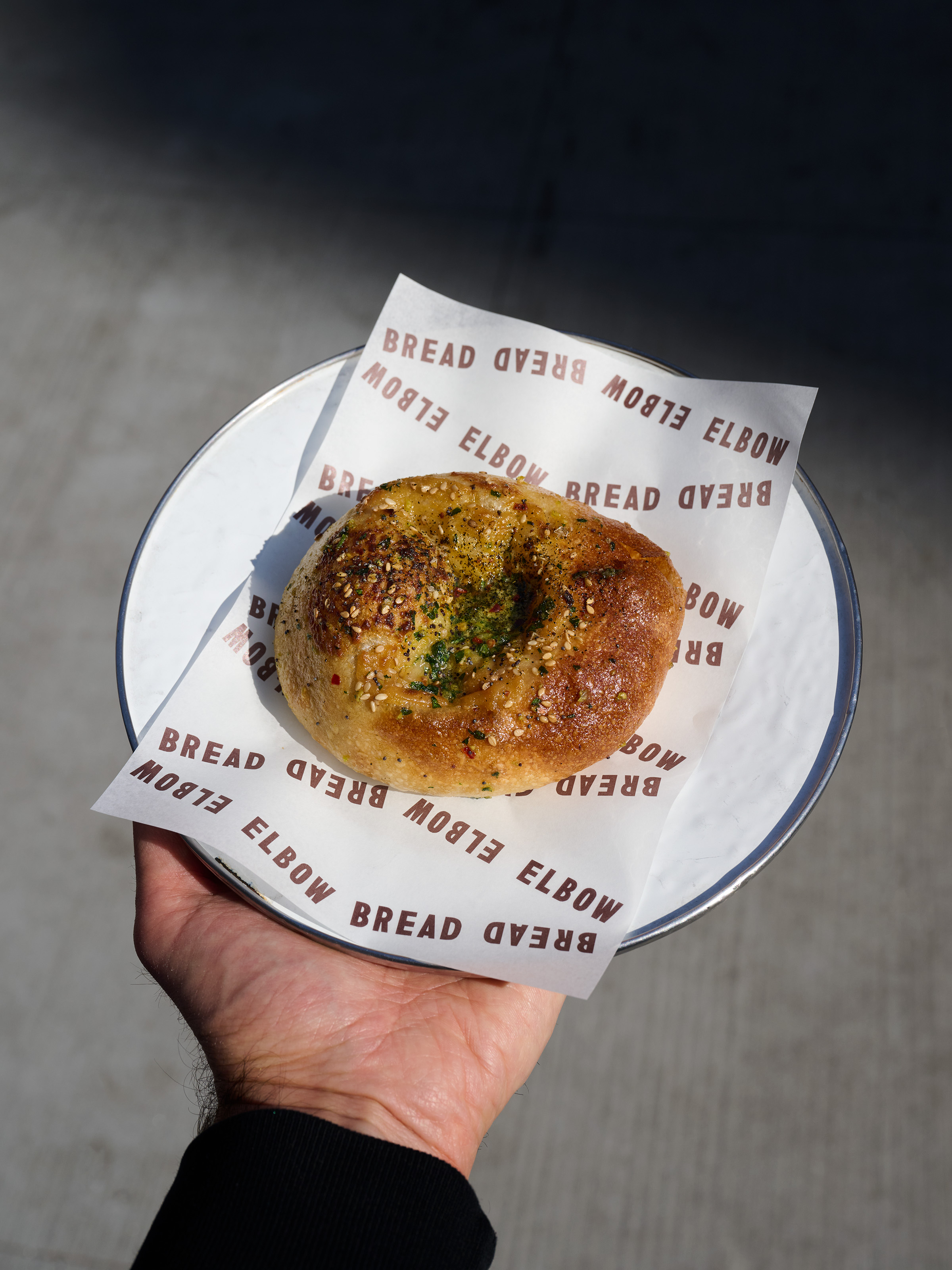
Most New Yorkers worth their exorbitant rent are familiar with the bready staples of the city’s Jewish community: challah, rugelach, babka, and of course, the humble bialy. Despite the city’s Instagram-era sourdough fanaticism, these baked goods seemed largely unchanged—until now.
Elbow Bread, which juts out “like an elbow” into the micro-neighborhood of Dimes Square was opened in late 2024 by baker Zoë Kanan alongside Eric Finkelstein and Matt Ross (the duo behind Court Street Grocers and S&P Lunch). Here, Jewish baking gets gently flipped upside-down—still rooted deeply in nostalgia, but with irreverent tweaks to tradition.
BAKING BEGINNINGS
Kanan’s passion for baking started long before she set foot in a professional kitchen. Raised in Houston, Texas, she was taught about Jewish traditions by her New York-raised grandmother.
“My mom’s side is Jewish, my dad’s side is Irish-Catholic,” she explains. “In Houston, there’s a Jewish community but we weren’t really a part of it. For my grandmother, baking was a way to bring that Jewish element into my childhood.”
Kanan’s earliest baking memories still linger strongly: “Her specialty was honey cake for Rosh Hashanah. She would warm the honey, and the fragrance would fill the whole kitchen—it’s such a strong scent memory for me.” Mandelbrot, a crisp almond cookie, also featured prominently in Kanan’s childhood home, though so did some projects she considers a departure from the Ashkenazi canon: “We would make cakes in the shape of our dogs for their birthdays,” she says and chuckles. “That was totally unrelated to our heritage.”
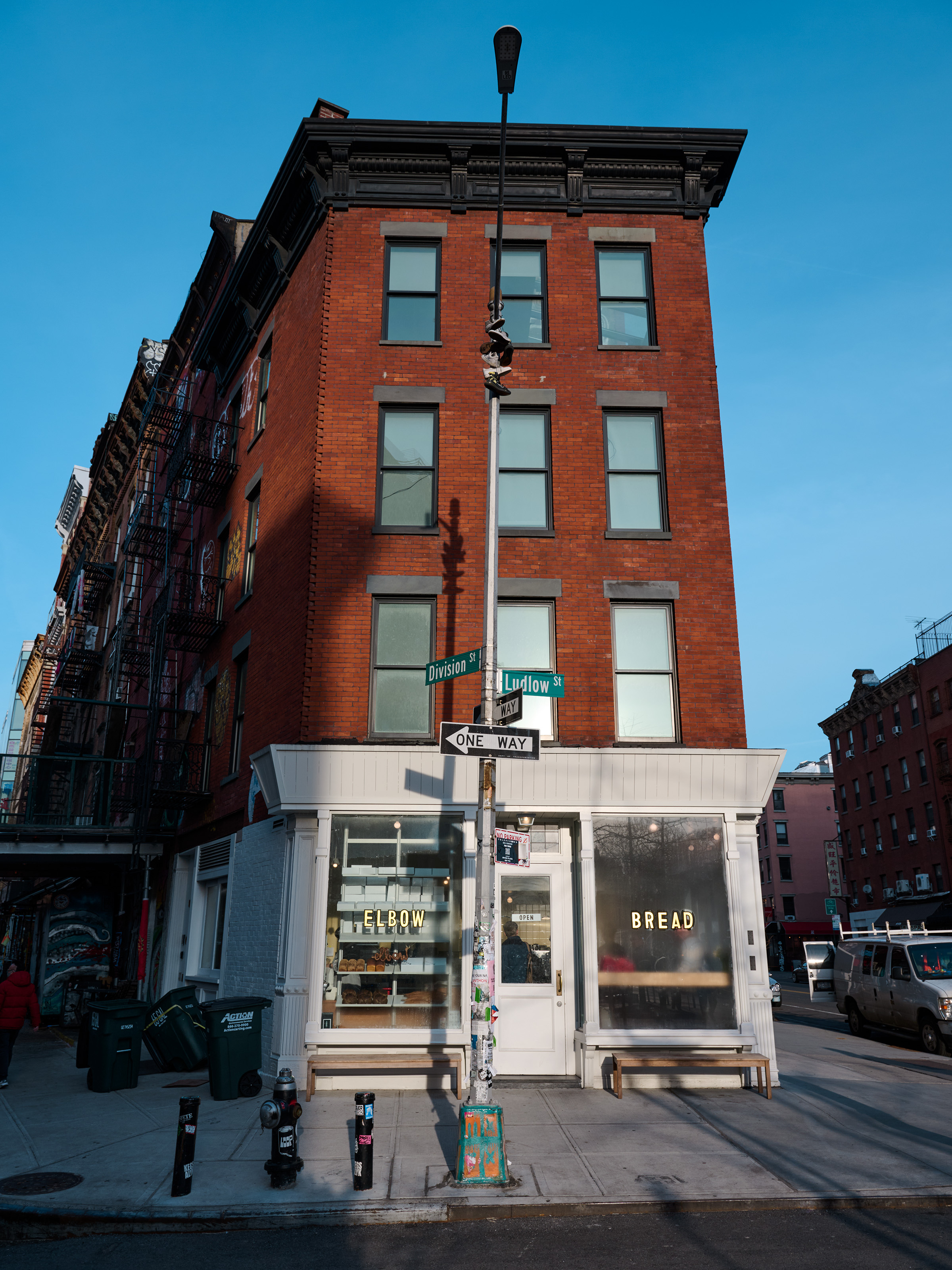
FROM MILK BAR TO A NEW KIND OF BAKERY
When Kanan arrived in New York for college in 2009, baking was not at the top of her mind. “I wasn't sure what I wanted to do—and I knew that I also needed to earn money to stay here,” she recalls.
Her journey into the culinary world began with a hosting gig at a David Burke restaurant, but it was her time at Milk Bar that truly sparked her passion for the industry. There, she saw firsthand how a playful approach to food could reshape expectations of pastry. Through roles at Sadelle’s and Simon & The Whale, Kanan continued to refine her craft while gaining a deeper understanding of New York’s bread culture and the gaps she aimed to fill.
BRINGING BACK THE BIALY
Elbow Bread is Kanan’s response to what New York was missing. The bakery offers an evolving menu of updated Jewish breads and pastries, among them hand-folded potato and sauerkraut knishes, cocoa-nib rugelach, and Kanan’s signature schmaltz and scallion knot.
Kanan sees her craft as an opportunity to both showcase Jewish staples and reimagine beloved classics like the bialy. “We don’t have the ventilation to make bagels here, but I saw that as a fun challenge,” Kanan explains. “We’re making bialys instead.” Her interpretation ditches subtlety altogether: “Traditionally, bialys have just a little smear of onions in the center, but I thought—why not fill them up? Ours have three to four times the normal amount of onions.” The dough itself is a careful balance—high-hydration, somewhere between a focaccia and a bagel—enhanced by barley tea and barley syrup for depth.
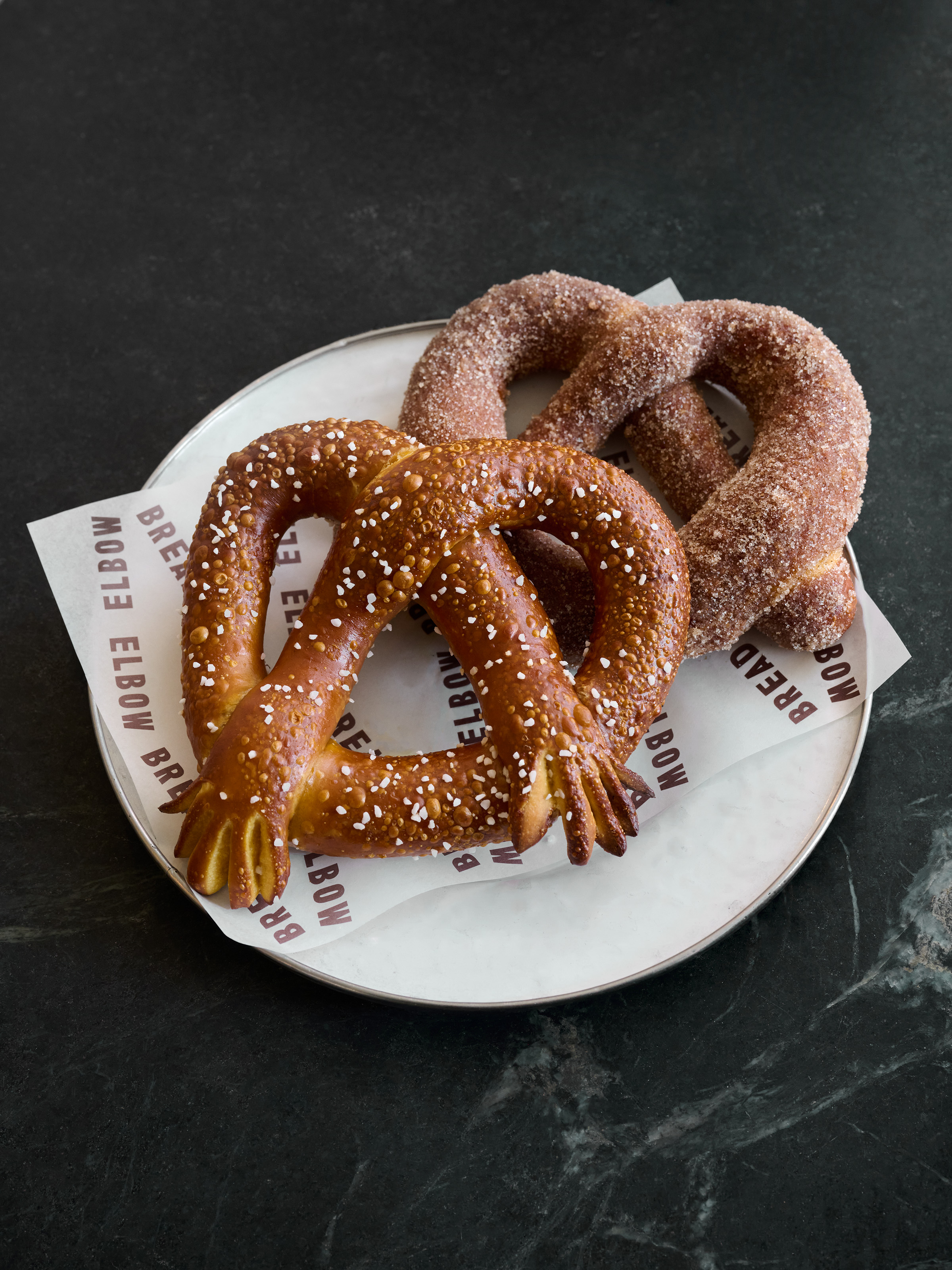
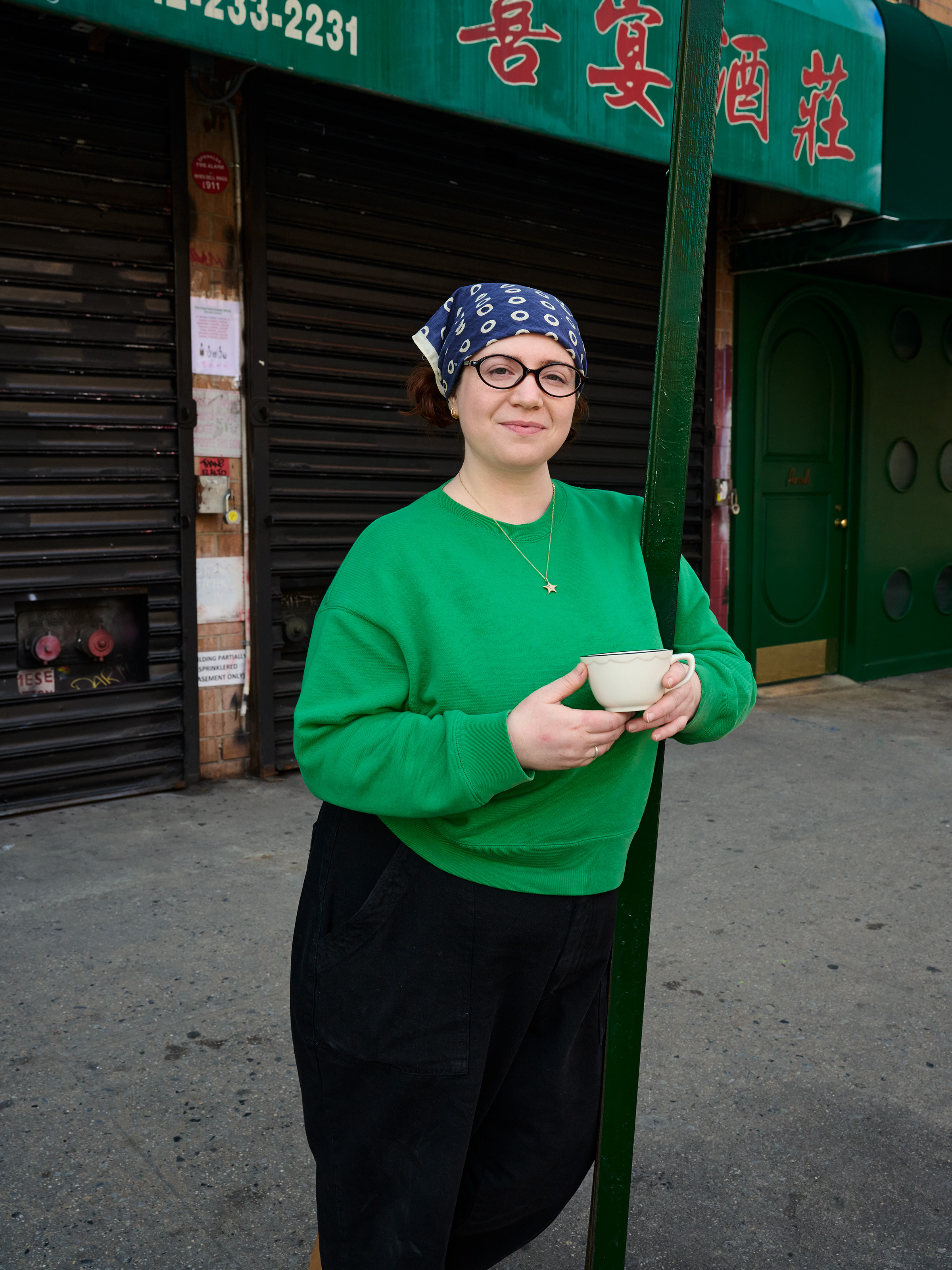
A BAKERY OF ITS PLACE
Elbow follows a long line of bakeries bringing Jewish traditions to life on Manhattan’s Lower East Side. Since the late 1800s, waves of immigrants, primarily from Eastern Europe, brought baking traditions that became integral to the city’s culinary landscape.
For New York’s early Jewish community, bakeries were more than just sources of food; they were vibrant social hubs where immigrants gathered, shared news, and preserved their culture. Bagels, rye bread, bialys, and rugelach became central to a neighborhood that has evolved with the decades.
Kanan’s Elbow Bread carries forward this legacy, honoring the craft and communal spirit of those early Jewish bakeries. In this way, Elbow Bread isn’t just a modern bakery—it’s a continuation of a storied tradition that developed just steps away from the Ludlow Street storefront.
For Kanan, Elbow’s proximity to the city’s historic Jewish roots is essential to her craft. “I’ve always been drawn to baking that has a cultural connection for me. Elbow is a blend of personal heritage and our location. It’s about carrying on a tradition while making it feel fresh and exciting.”
As part of a larger trend, Kanan sees baker-driven shops as vital to the city’s doughy renaissance. “Pastry has never been the most valued part of a restaurant—it’s often the first thing to get cut when budgets tighten,” she says. “Now, a lot of talented bakers are creating spaces that put baking front and center.”
The bakery’s name, coined by Kanan herself, came about casually: “I was upstate with some friends, brainstorming names, and I described the way our location juts out into the square ‘like an elbow.’ The moment I said it, I knew that was it.” The name evokes the physical act of baking—kneading dough, being arms-deep in flour, and jostling for attention at the bakery’s Manhattan counter.
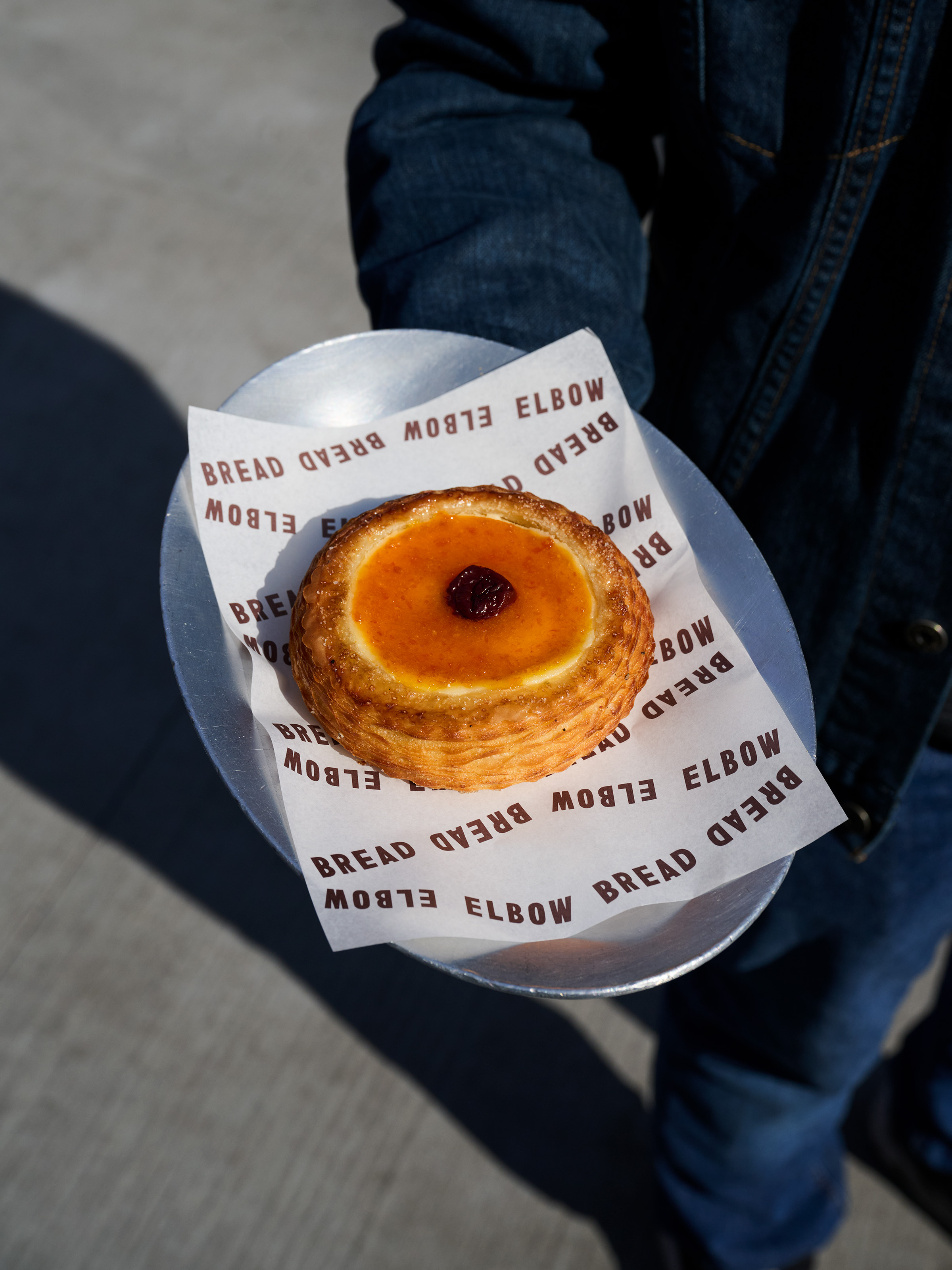
ELBOW BREAD
1 Ludlow St,
New York, NY 10002